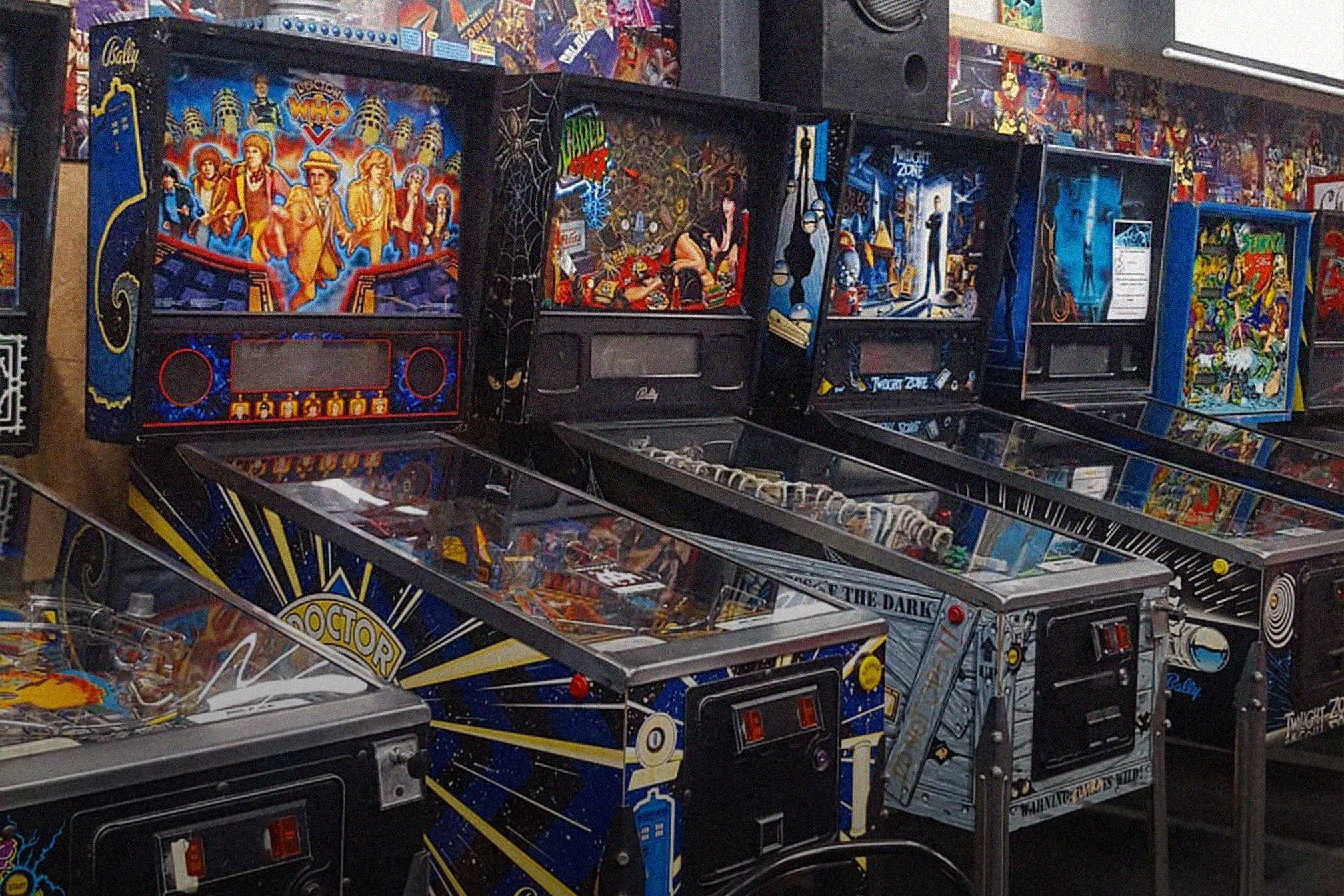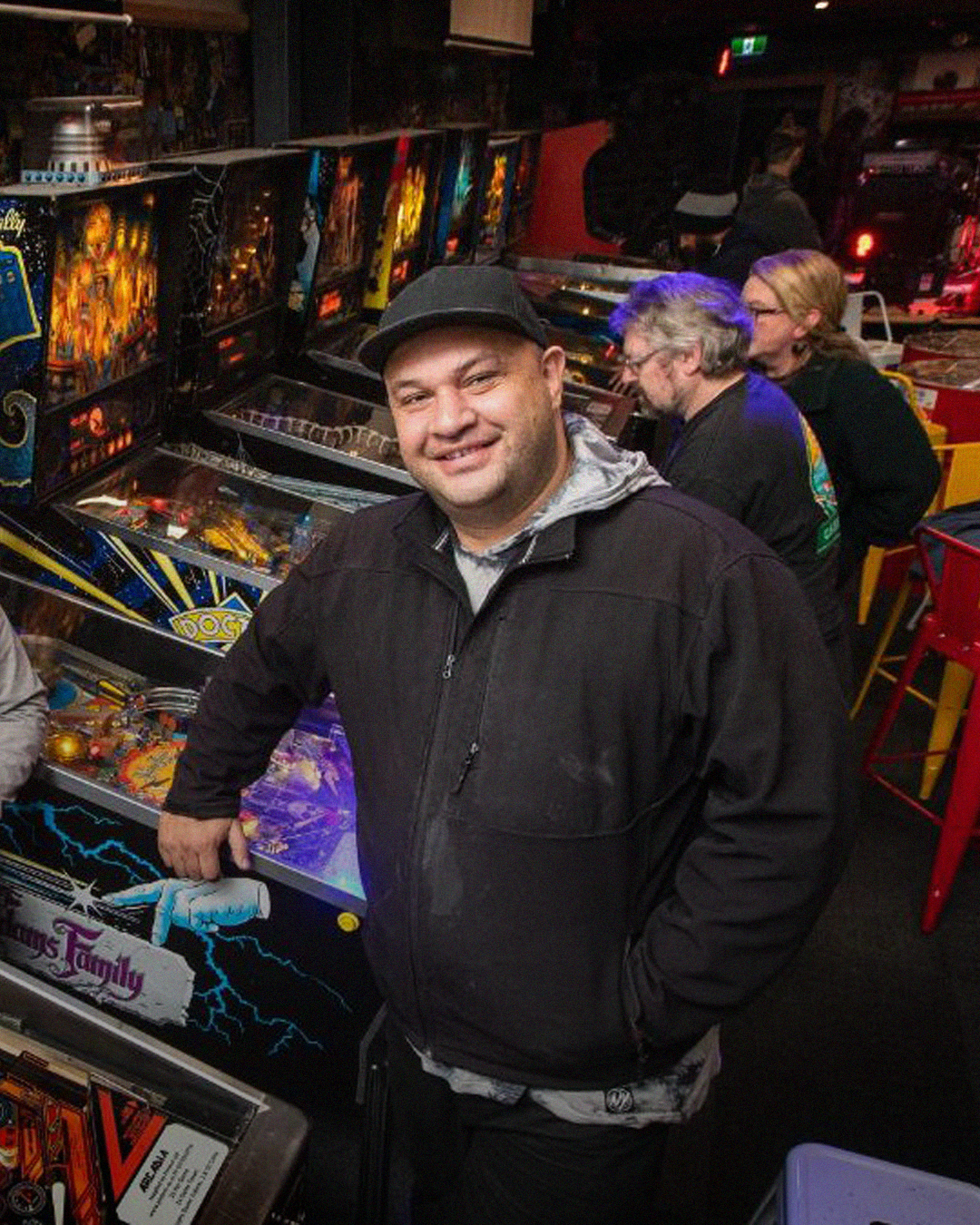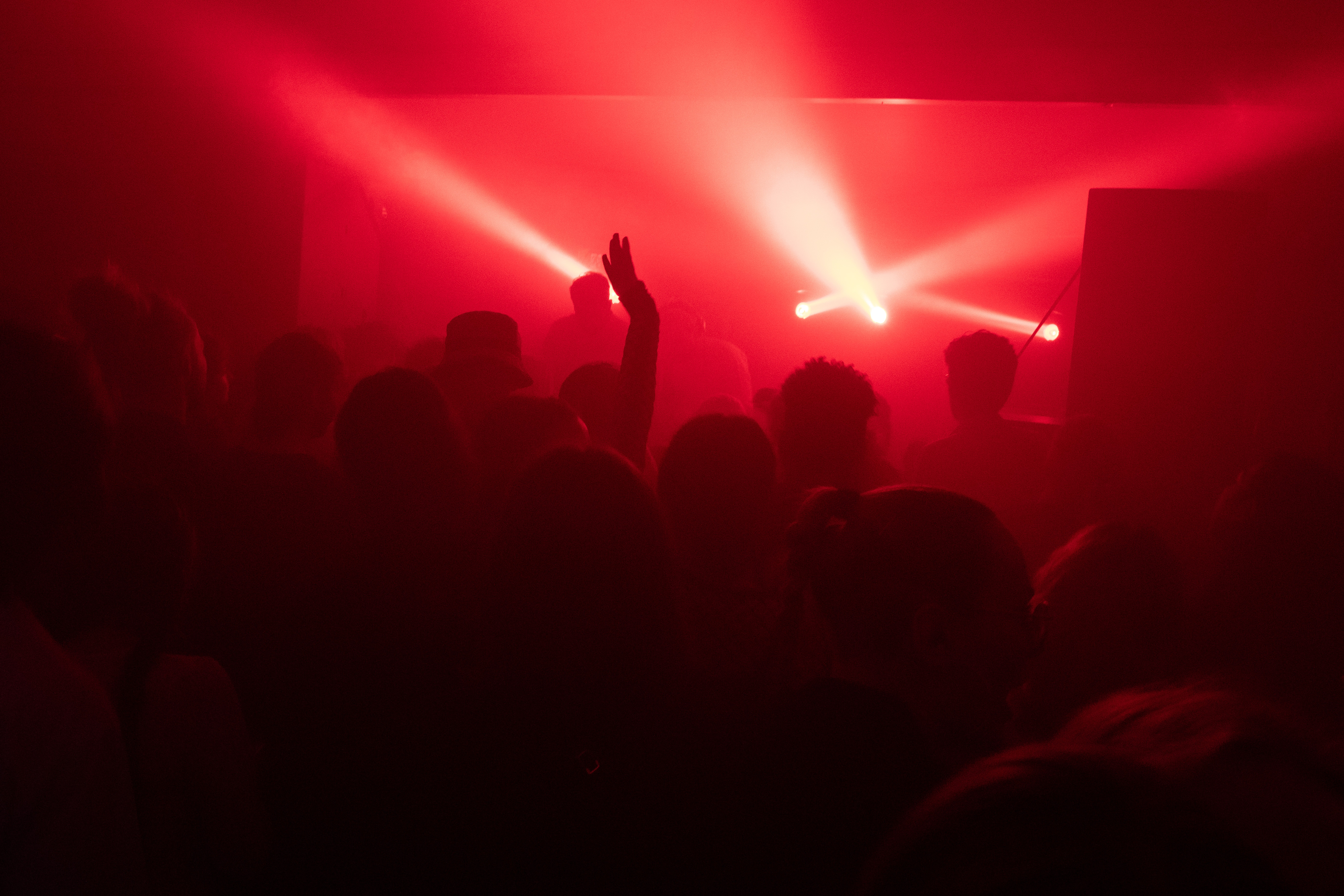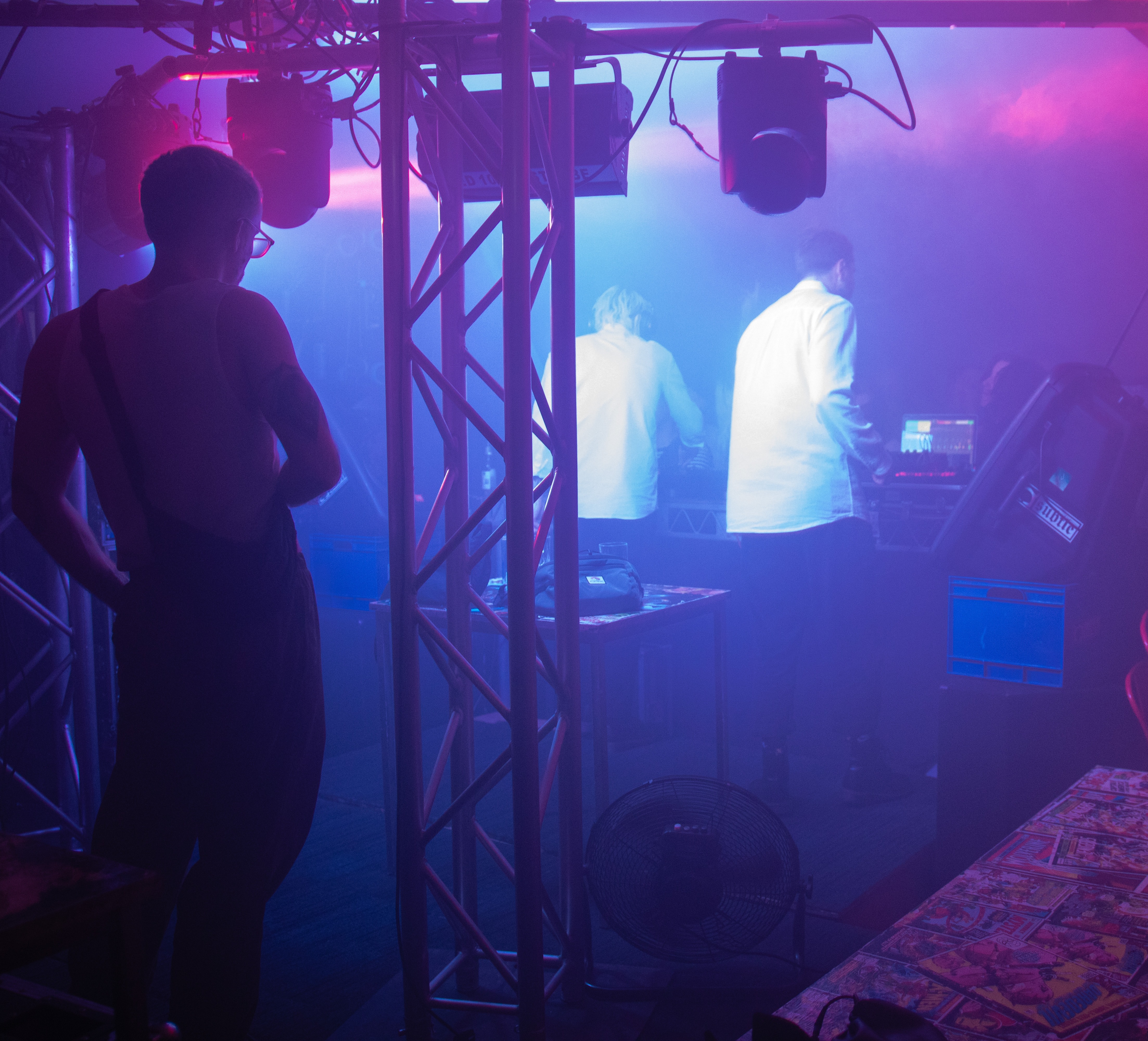 CULTURE
CULTURE
Venue Spotlight: Galaxy Bar
The Ōtautahi/Christchurch venue's story is one centred entirely around community passion & safety.
The story of dance music in Ōtautahi/Christchurch is one of resilience, survival, and genuine passion. Following the decimation of the central city in the February 2011 earthquakes, underground nightlife, for many years, was relegated to the margins in unofficial and make-shift locations due to the loss of the city’s venue spaces. 14 years later, the South Island’s largest population centre is finally feeling a sense of revival and recovery – but amongst the grey concrete of new developments, does a sense of past night-time vibrancy remain?
Setting foot within the walls of Galaxy Bar answers with a resounding ‘yes’. Located on the eastern edge of the central city next to the imposing frame of the ongoing Te Kaha Stadium development, the part-venue, part-retro-arcade screams character. Visually chaotic with its video game memorabilia, DIY décor and flashing screens, Galaxy speaks to values that have been present within the South Island’s rave community for decades.
Owned and operated by long-standing Ōtautahi dance scene icon and advocate Matt Glanville, the multi-use space serves diverse communities in the city under the banner of good old unpretentious fun. “In design, it’s a play space”, Matt says, “a space where people can come together with the primary aim of connecting with each other and having some fun in a down-to-earth, do-it-yourself, old school Kiwi way.” From raves, to drag events, to karaoke and retro-gaming, Galaxy serves a multitude of scenes and communities in a way not like anywhere else in the city.

Matt further elaborates, “it’s lots of different things to lots of different people” with a focus on communities “that have struggled to hold space.” This includes the dance music community, much of which Matt highlights, “are not driven by financial gains. It's often financially unsustainable, and people are losing money to do the party.”
In Ōtautahi, “they really are doing it for the love of music”, Matt says.
From the dancehall and dub-driven sounds of the Chief Remedy Sound System, to the bass pressure of the city’s dubstep mainstays Subtle Sound System, to the raving techno pushed by record label and party crew HAVEN, to which this writer is a part – the venue plays host to a diverse range of sounds representing the multifaceted pulse of Ōtautahi’s electronic underground.
Marie Lawrence, co-collaborator from HAVEN, says their events are about “providing a mixed social and cultural demographic with a considered and immersive environment to find both abandon and commonality in.” Over the past 2 years, they’ve hosted the likes of Berghain resident Boris, Tresor signee Yazzus and Aotearoa Māori bass legend Mokotron within the venue. When seeing the inside of Galaxy for the first time, Marie saw the potential right away. “It had so much character, but also had the right physical bones to it. And talking with Matt was like pure synchronicity. We had a very mutual understanding of partying, and he completely understood my motivations and vision.”
Ryan ‘Ill Figz’ Bluett from Subtle Sound System also felt at home bringing his events to Galaxy after running the sound for multiple parties there. “Matt really set the venue apart by creating a space that’s all about inclusivity and diversity. It’s one of the few spots in Christchurch where everyone feels welcome, no matter their background or experience. It’s a place that fosters a strong sense of community. You get a wide range of events from the underground realm, and there's always an emphasis on keeping the atmosphere friendly and open.”
The inclusivity and diversity of Galaxy stems from Matt’s desire to serve marginalised communities in the city. “It’s hard to find a place where you're able to go and belong, that space where you can chill out and just be you and party. It sounds so cliché, but for a lot of people, that marginalisation is real.”
Given Matt’s standing as part of the Ōtautahi LGBTQI+ community, the venue often finds itself as one of the few spaces in the city where they can hold space.
“Our rainbow community is pretty hardcore here”, he tells us, but "it's not constructed."
"It’s not ‘we are a gay bar’ – people are just naturally coming, feeling comfortable and then coming back. In particular, at our dance events, because of the general values and safety and the celebration of diversity that's there.” This natural feeling of safety for this community is central for Matt, given the enduring danger posed to LGBTQI+ individuals at night across Aotearoa. “I think people keep telling you that it's safe and inclusive, but at night you're still going to get a hiding.”
It makes sense that Matt has become a facilitator of space for marginalised peoples when hearing about his background in both the South Island rave scene and community and youth advocacy. “I think the rave scene inspired and saved my life. Without the exposure to those people and outdoor parties, life would have been very, very different.” In particular, his involvement with South Island outdoor party collective Massive – whose events from 1995 till the late 2010s were a big influence on the Ōtautahi dance scene – exposed Matt to values and activism he’d carry throughout his life.
“They were partying, but people were being kind and really nice to each other. It was a real community of people that would talk and chill and help each other out. You were going there to be outdoors and not wreck it. If anything, you're going to leave some trees behind. They were also real activists. They're painting, they're sewing, they're building things, whether it's building sound systems or building houses. This was an active and dynamic community of people. Heaps of them even lived in a little commune! It was really quite incredible.” Many of these values matched those he grew up with in a Samoan household. “The values that I was raised on resound so closely to the values that I found in the dance community.”

Matt took these ideals with him into 20 years of youth advocacy work, working with at-risk and complex-needs young people. “The big thing that I wanted to do was take those principles of youth development and see if we could use music as a catalyst to support young people in their development and then connect those young people to these awesome people that I'd met in that dance community.” This resulted in him working with the White Elephant Youth Development Trust where he set up “a mentoring programme where all of those people involved in the dance scene, in music production, event management, radio stations like Pulsar FM and RDU – we were matching them with young people that had an interest in that field.”
The history of the building Galaxy lives in mirrors Matt’s own history of advocacy and activism. “This building, even before we came along, was CORSO, an international human rights and advocacy group. People who are familiar with New Zealand history will know about the Springbok tours, the protests around Apartheid. All were locally coordinated from this building. The protest action was planned here. The signs have been made here.” It then went on to house initiatives such as The Pacific Island Underground, a group showcasing Pasifika people’s culture, environmental and social activists Ōtautahi Social Centre, alongside White Elephant and Matt’s Kreation Art House project centred on youth development and creativity. Matt tells us, “it has always been a place where people gather and activate, meet people of like mind and take some actions looking at strengthening of community or an environmental protection or just some affirmative action.”
Galaxy as a venue also represents a significant DIY current present across the Aotearoa musical underground. From the 1980s post-punk NZ wave seen most prominently on Flying Nun Records to the warehouse and outdoor raves of the 90s through to the modern day – doing great cultural things with the bare bones of the resources at your disposal has sat at the centre of the country’s musical movements for decades.
Matt tells us “we started doing parties here and everything was built out of rubbish from the side of the road. The stages are all pallets, the carpet came from a dumpster somewhere. Everything was just begged, found or borrowed and we still do it.” When asked about the colourfully decorated mannequins in the outdoor area Matt says “a lady came into a dance party and loved the place, started hanging out for a few weeks and had them in her garage. Brought them down, over a couple of months painted them up and left them here. So many different people have contributed to this space, whether it's a chair, a table, a collage or they've painted it up. Gradually and over time it's just morphed into this thing that it is now.”
Ryan from Subtle, with his wealth of experience in the DIY music culture of Ōtautahi, keenly feels this spirit in the venue. “Galaxy really embodies that DIY ethos. Matt and the team have created a space that operates with a similar mindset. It still feels driven by the same spirit of collaboration and community that the DIY scene thrives on. Galaxy is a place where everyone—from promoters to DJs to the crowd—plays a part in creating the vibe. It’s that sense of involvement and ownership that makes it unique.”
“It doesn't have to be modelled off of what mainstream nightlife culture looks like”, Matt continues.
“People do say, ‘oh when the stadium's built you'll be so busy you'll have to tidy the place up a bit.’ What does that mean? Does that mean throw everything outside and make it look shiny like a sports bar? No! It gives it a personality of its own.”
Since the 2011 earthquakes spaces like Galaxy, that facilitate alternative and marginalised creative communities, have been thin on the ground. Matt tells us “without the availability of random places for people to set up their parties and have a go and just try and do it, a lot of people are missing out on being able to play in front of their peers. The spaces don't exist. And there used to be lots of them. Lots of crazy old warehouses or underground bunkers to have parties in. And they're not there now. In the inner city, there's a limited offering, especially for the more diverse people, more creative and alternative. The expectation is you're going to party with those people on the main strip. It's wrong.”
This makes Galaxy’s existence all the more important within the Ōtautahi central city. Marie from HAVEN points out “there is an energy in the place that can only come from the top down. This venue is run with heart, passion and a feeling of absolute necessity in a landscape of many substandard generic nightlife spots. I think it has a very unique and beautiful organized chaos within it that allows for freedom of desire. It’s a rare thing.”
Matt clearly sees the importance of protecting such limited alternative space in the city. “If you've got your space, you've got to nurture it and figure out how you're going to protect it. Not only making it financially feasible so it stays open, but the value set in that culture you're holding and cultivating.”
“How are you going to hold that, protect and promote that, and really look after the people that walk into your space? The people that walk in, in my view, they become your responsibility, over and beyond what host responsibility is on a liquor licence. You, in having the space, really must make sure that you're looking after all of those people that walk through it and make sure they are safe and that it's contributing to them and not subtracting from them. Because I'd loathe to have a place that just continues to take, take, take from the people that walk in, ruin a few lives here and there, and you get to pay my rent, which is so gross.”

In a world of tightly curated, visually monotonous, and gate-kept venues and events, Galaxy stands out a mile. With old-school rave values and activism at its core, the venue provides space for those who do not feel at home within the normative nightlife paradigm. In doing so, it enriches the creativity of communities that have often been pushed to the margins. “I think the strength that creative pursuit brings to people and their resilience in general is really important, and it has to be nurtured. Creators need their space,” Matt says.
Towards the end of our conversation, Matt reminisces about his time first going to raves as a teenager. “The party broke up the monotony of my week. Going to school, achieving all the nice grades, going to work. The party reminded me that there was something outside of all of that. I see so many people partying here whose whole existence sits way outside of the norm. And they’ve found their place with people at that party.” More than ever, DIY venues run with the social intent and passion behind somewhere like Galaxy are of the utmost importance for both creative communities and alternative and marginalised partygoers. With the right support and ideals of care and community, they can outlive natural disasters, political hostility, and economic downturn and enrich our cities for years to come.
-
James Barrett is a freelance writer, also DJing and producing under the name Keepsakes. Follow him on Instagram.


